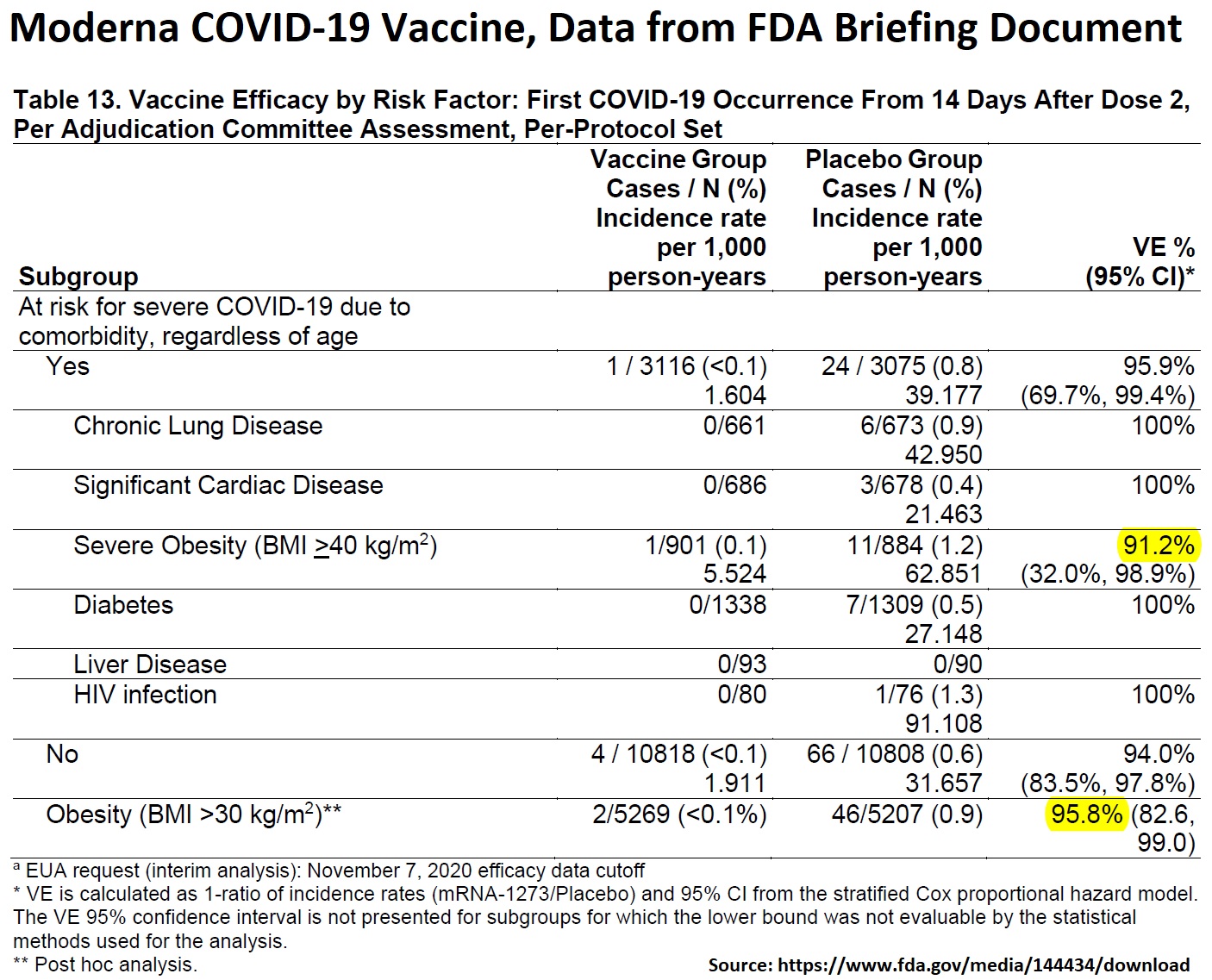
What Distinguishes a Lie from Misinformation?
This has become too common in recent years. We find ourselves parsing the difference between misinformation and a lie. We all have plenty of fresh examples. But the one on our mind comes to us from reporting by the Washington Post. Yesterday, Alexandra Ellerbeck reported that COVID-19 vaccines might be less effective for people with obesity. “There’s no research on this question yet,” she wrote.
 This is untrue. Both the Moderna and the Pfizer vaccines were studied in people with obesity. In fact, for the Moderna vaccine we have data on people with severe obesity, too. For both vaccines, the effectiveness is just the same for people with obesity as it is for everyone else.
This is untrue. Both the Moderna and the Pfizer vaccines were studied in people with obesity. In fact, for the Moderna vaccine we have data on people with severe obesity, too. For both vaccines, the effectiveness is just the same for people with obesity as it is for everyone else.
Short-Term Data
Of course, this is short-term data. All of it. The mean follow-up on subjects in the Moderna study was seven weeks. So over time, effectiveness may fade for anyone who gets the vaccine – whether or not they have obesity. It may fade faster or slower for some people, but we simply don’t know.
What we do know is that we have two vaccines and they seem to work equally well for everyone in the short term.
Misinformation Versus a Lie
A lie is a false statement told with the intent to deceive. The person who tells a lie knows it is false. But misinformation is simply false. The person who spreads it might or might not know the truth of the matter.
Both lies and misinformation are harmful, often equally so. We have many recent cases to consider on this subject. In general, people are reluctant to call something a lie because it is hard to tell what a person’s intent is. So we’ve become accustomed to reading reports that dance around this question. Phrases like “baseless claim” and “false statement” have become common.
In this case, the misinformation is serious. Telling people that a vaccine won’t work for people with obesity can contribute more vaccine hesitancy – for no good reason. It’s irresponsible because it’s false.
Most likely, Ellerbeck was unknowingly passing on misinformation when she wrote that there’s “no research” on the effectiveness of COVID-19 vaccines for people with obesity. But as a journalist, she has a solemn responsibility for checking her facts. She should correct her error.
For Ellerbeck’s reporting, click here. For more on the effectiveness of COVID-19 vaccines in obesity, click here and here.
Lying Dog, painting by Franz Marc / WikiArt
Subscribe by email to follow the accumulating evidence and observations that shape our view of health, obesity, and policy.
January 7, 2021
